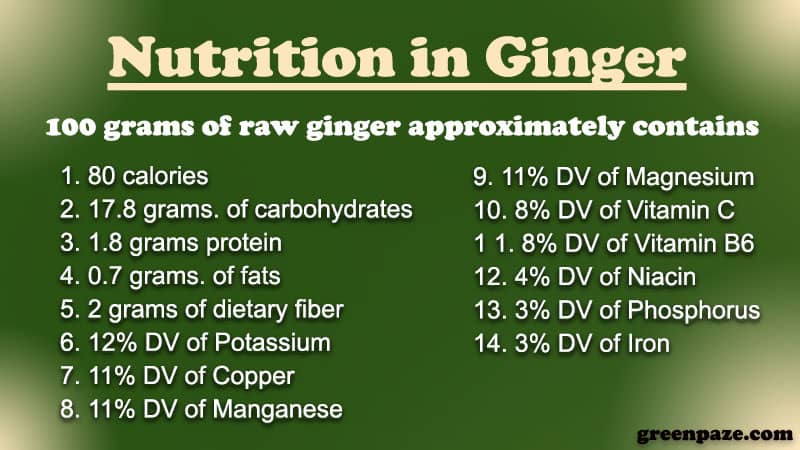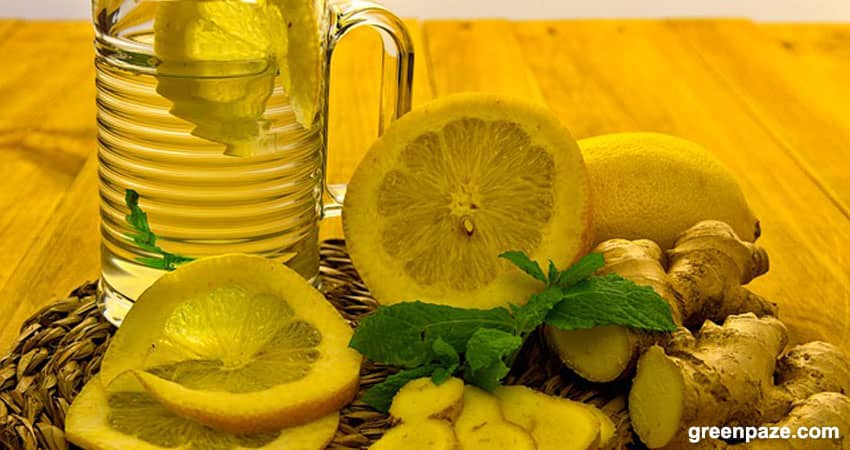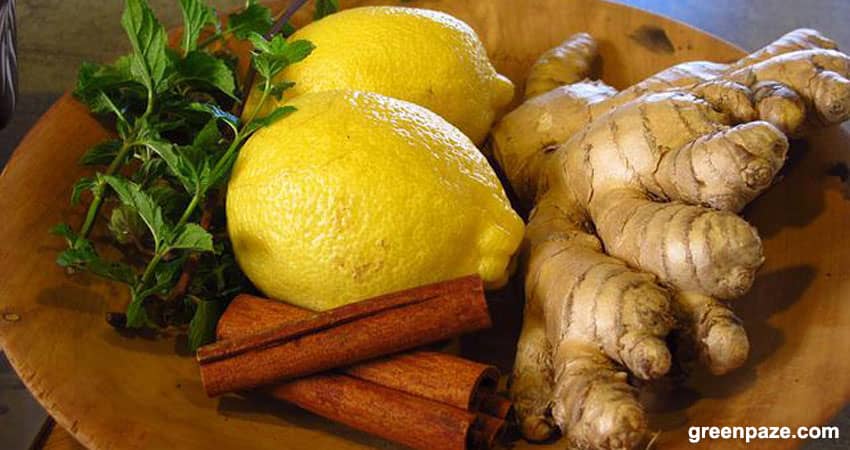
Ginger is undoubtedly one of the most popular superfoods on our planet, and we can attribute that to both its unique flavor and has many health benefits. Not only that it's highly versatile and easy to use in both beverages and preparations, offering benefits from beating motion sickness to better brain function.
So, what is it for, and how to consume ginger?
In the market, ginger is available in powder, fresh as dry, capsules, or in juices, and lemonades as an ingredient that gives personality to the drink, it has antioxidant, and anti-inflammatory properties. Besides, it contains therapeutic compounds such as gingerol, shogaol, paradol, and zingerone which are responsible for a large number of its profits.
What are Ginger and Ginger Root?
Ginger is often confused with turmeric due to its shape and image. Ginger is closely related together with cardamom. Ginger root, which is the underground part of this plant is well known for its medicinal properties.
The health benefits of ginger root have been documented around the world for thousands of years, including in ancient Chinese, Roman, Greek, Arabic, and Sanskrit texts [1].
Nutrition in Ginger

Benefits of Ginger to Health
1. Helps Treat Nausea
As a natural remedy to relieve nausea and vomiting, ginger has been used for many years.
An analysis of 12 studies involving 1,278 pregnant women found that ginger helped decrease symptoms of nausea with minimal risk of side effects [3]. On the contrary, a study showed that the patients who are treated with chemotherapy, ginger helped to reduce the severity of nausea for them [4].
2. Protects Against Stomach Ulcers
Stomach ulcers are sometimes caused by very painful sores that form on the stomach wall resulting in indigestion, fatigue, heartburn, and discomfort.
Just before we have known that ginger helps prevent stomach ulcers. A 2011 study showed that powdered ginger protects against aspirin-induced ulcers by lowering levels of inflammatory proteins and blocking enzymes associated with their development [5].
3. May Inhibit Cancer Growth
Ginger has a compound ingredient, named 6-gingerol, which possesses strong anti-cancer abilities.
Test-tube studies have shown that ginger and its compounds are effective in blocking the growth and development of ovarian, pancreatic, and prostate cancer cells [6, 7, 8]. Despite many significant attributes of ginger, it is needed more research to determine the properties of ginger against cancer in general.
4. Relieves Joint and Muscle Pain
It has been cited that ginger has a strong anti-inflammatory capacity, that helps treat both muscle and joint pain related to arthritis.
Daily consumption of ginger has been shown to help substantially reduce muscle soreness caused by exercise [9]. On the other hand, another study conducted on people with osteoarthritis (usually in the knees) showed that the consumption of ginger extract helped reduce knee pain and the need for pain medications [10].

5. Improve Brain Function
Alzheimer's and Parkinson's are fatal brain harmful diseases that are called neurodegenerative diseases which have been linked to oxidative stress and chronic inflammation of the brain. With its great antioxidant and anti-inflammatory properties, we could assume that ginger may play a vital role in brain health.
Some studies have shown that ginger extract might protect against brain aging and cognitive decline [11, 12]. A 2012 study has given the good news that ginger helps progress attention and cognitive function in middle-aged women [13].
6. Relieves Inflammation
Inflammation is mainly a healthy, autoimmune response to injury and infection, but chronic inflammation is alleged to contribute to conditions like obesity, diabetes, cancer, and heart disease [14].
A review of studies in the International Journal of Preventive Medicine showed that gingerol, shogaol, paradol, and zingerone compounds in ginger may help inhibit the synthesis of some markers of inflammation [15].
Another benefit of ginger that remains to be proven but has appeared in the prevention of blood clots (reducing the possibility of heart attacks) thanks to its natural acids that thin the blood [16].
7. Fight Fungal Infections
Fungal infections sometimes can cause a wide variety of fatal circumstances, such as jock itch or athlete's foot. Ginger should get thanks to its antifungal properties; ginger helps kill the fungi that cause these diseases.
A 2016 study showed that ginger is effective against two types of fungus that commonly cause mouth infections [17]. On the other hand, another study tested the antifungal effectiveness of plants and found ginger to be the most effective at killing fungus [18].
8. Relieves Menstrual Cramps
Many women, unfortunately, suffer side effects such as pain, cramps, and headaches associated with menstruation. While many people are turning to over-the-counter medications to relieve symptoms, where natural alternatives like ginger can be just as effective.
A study conducted found that ginger reduced menstrual pain as effectively as ibuprofen and mefenamic acid [19]. Another study in 2009 showed that it reduces both the intensity and duration of menstrual pain [20].

9. Regulates Blood Sugar Levels
High blood sugar levels contribute to many negative symptoms, even probably causing problems like diabetes or nerve damage.
An important piece of information recently published is that ginger helps promote blood sugar balance. A 2015 study found that fasting ginger intake reduced blood sugar by 12% and improved long-term blood sugar by 10% [21].
10. Lowers Cholesterol Levels
High cholesterol levels surely cause blockages in blood pathways, resulting increasing the risk of heart disease.
Cardiovascular diseases are the foremost cause of death globally, tentatively taking an estimated 17.9 million lives each year.
Thanks to ginger, it naturally has many benefits in lowering cholesterol and triglyceride levels, reducing the chances of cardiovascular problems.
A study conducted found that ginger consumption could significantly reduce bad cholesterol (LDL) while increasing amounts of good cholesterol (HDL) compared to a placebo group [22]. Another study showed ginger to be as effective at improving cholesterol markers as atorvastatin, a commonly prescribed medication for this condition [23].
11. Blocks Bacterial Infections
Having antifungal attributions, ginger is a great antibacterial, and effective against urinary tract infections, pneumonia, or bronchitis, among others.
Ginger was found to help inhibit the growth of certain strains of bacteria linked to gum disease [24], and also effective against several drug-resistant strains of bacteria [25].
12. Promotes Good Digestive System Health
The most outstanding attribute is its ability to support digestive health and prevent problems such as indigestion or dyspepsia, which usually causes pain, heartburn, fullness, and discomfort.
According to a study conducted, ginger helps stomach emptying by 25% compared to a placebo in people with indigestion [26]. Besides, taking ginger capsules with a meal doubled the rate of stomach emptying [27].

How to Consume Ginger
Already it has been enlightened that ginger is a great superfood for anyone, but how do we consume it?
Ginger can come in different formats:
💦 Powdered ginger
💦 Ginger in capsules
💦 Ginger root (fresh)
💦 Ginger tea
💦 Lemonade with Ginger
💦 Lemon and ginger juice with chia seeds
In the case of wanting to add fresh ginger to our diet, we suggested cutting a few slices and adding it to our drinks for an extra kick. Moreover, it can also be grated or blended to add to soups, salads, or sweets to boost its flavor.
Moreover, you can use ginger powder in cooking baked goods, desserts, and candies. A great tasty addition to sauces, stews, or curries.
You May Like 13 Stunning Benefits of Drinking Guava Juice








1 Comments
Excellent writing
ReplyDelete